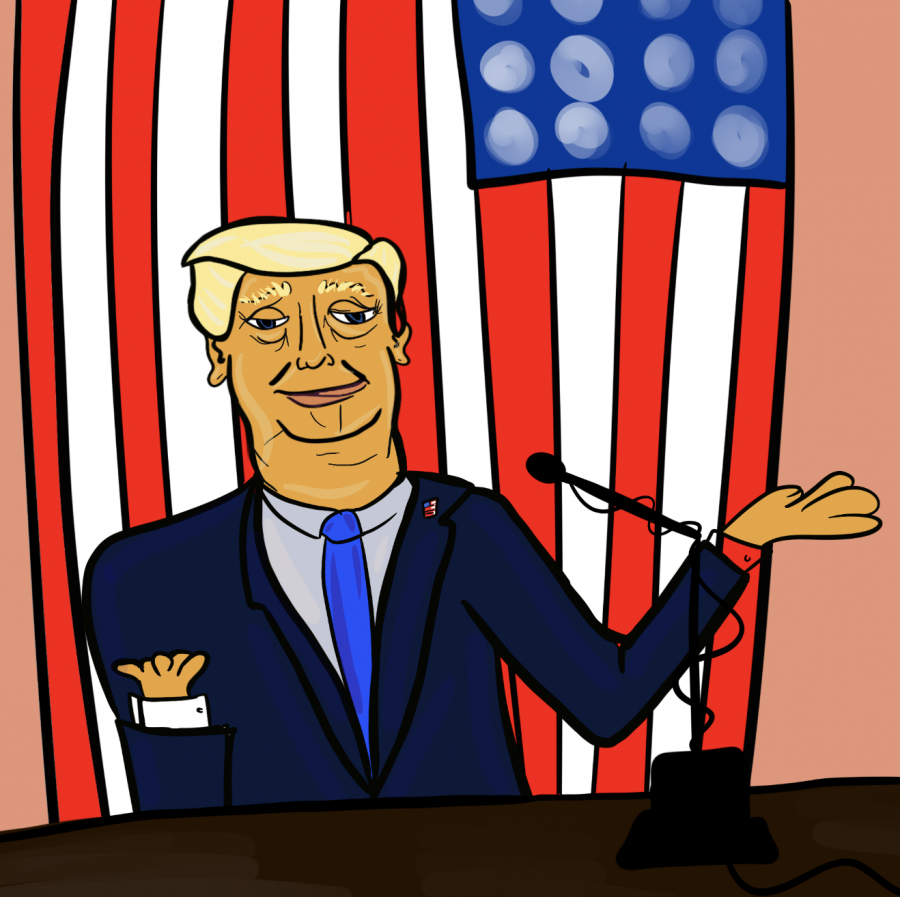President Trump and Speaker Pelosi jostle for power
January 31, 2019
Olivia Braito, Graphics Manager
Graphics by Olivia Braito.
The State of the Union Address (SOTU) fulfills a constitutional obligation of the President of the United States, but recent events—including a back and forth between President Donald Trump and Speaker of the House Nancy Pelosi—have forced analysts to pose some serious questions: How important is the SOTU and was it truly the center of this dispute?
Throughout his presidency, Trump has consistently opposed traditional conventions and governed quite differently from his predecessors. Yet, regarding this particular presidential duty, it was not he who was violating norms. Instead, it was Pelosi.
On Jan. 23, Pelosi wrote to Trump: “I am writing to inform you that the House of Representatives will not consider a concurrent resolution authorizing the President’s State of the Union address in the House Chamber until the government has opened.” Pelosi justified her actions by referencing security concerns about the President delivering the address.
In reality, it is all just a petty squabble between two rivalrous leaders, which began the previous week when Pelosi received a letter from Trump. The letter informed the Speaker’s office that her seven-day trip to Brussels, Egypt, and Afghanistan was postponed “in light of the 800,000 great American workers not receiving pay.” Trump ended his letter by asserting that it would be more appropriate if she were in Washington D.C. negotiating an end to the shutdown.
Following Pelosi’s letter, Trump agreed to postpone the speech, tweeting, “I will do the Address when the Shutdown is over.” The President’s decision was not surprising, as he had expressed his willingness to negotiate the circumstances surrounding the speech for weeks prior to the announcement.
What has become clear after the government reopened on Jan. 25 is that the debate was not about the address itself. It was about power.
Trump and Pelosi used their constitutional powers as President and Speaker of the House, respectively, to take shots at one another during their written exchange. Neither one was truly concerned about the SOTU. In fact, Pelosi cited in her letter that numerous presidents have given theirs to Congress in the written form. It appears that the SOTU was just a pawn in their ongoing game of political chess.
The events leading up to the reopening of the government between two of the nation’s most powerful leaders is just the beginning of what will be a tense relationship between them and their respective parties. For the remainder of their time as President and Speaker of the House, Trump and Pelosi will certainly continue to trade blows with one another. In this case, the dispute was never about the SOTU or trips abroad, nor will the next one truly be about what it seems on the surface. These exchanges are manifestations of the partisan power struggle and will continue to be into the future. However, moving forward, it is important for American citizens that Democrats and Republicans reach across the aisle to create policy rather than conflict.






















